



On November 15th, the Seminar on Sustainable Development of Marine Economy of 21st-Century Maritime Cooperation Committee was successfully held at Fuzhou Strait International Conference and Exhibition Center. The event was jointly organized by the 21st-Century Maritime Cooperation Committee and Fuzhou Municipal People’s Government. Distinguished guests H. E. Wang Jinfu, Vice Governor of Fujian Provincial People’s Government; H.E. Fazeel Najeeb, Ambassador of the Maldives to China; H.E. He Guangshun, Chief Engineer of the Ministry of Natural Resources, China; Mr. Alfred Mentore, Mayor of Georgetown, Guyana; Mr. Jordi Vaquer, Secretary General of Metropolis; Prof. Shahbaz Khan, Director of UNESCO for Regional Office for East Asia and Representative to China, DPRK, Japan, Mongolia and ROK (via video); Mr. Francis F.B. Green, Chairperson of Kiribati Local Government Association and Mayor of Eutan Tarawa Council; Mr. Qi Wei, Deputy Director-General of China Center for Contemporary World Studies, International Department of the CPC Central Committee,; Dr. Zhang Haiwen, Executive Deputy Chairman of Chinese Society for the Law of the Sea, Senior Research Fellow of China Institute for Marine Affairs, Ministry of Natural Resources, China,; Mr. Zhao Mingzheng, Deputy Mayor of Fuzhou Municipal People’s Government and Secretary General of 21st-Century Maritime Cooperation Committee attended the event. More than 150 representatives from international organizations, embassies and consulates in China, international friendship cities, member cities of the Committee, provincial and municipal leaders, experts, scholars, and business representatives were present.
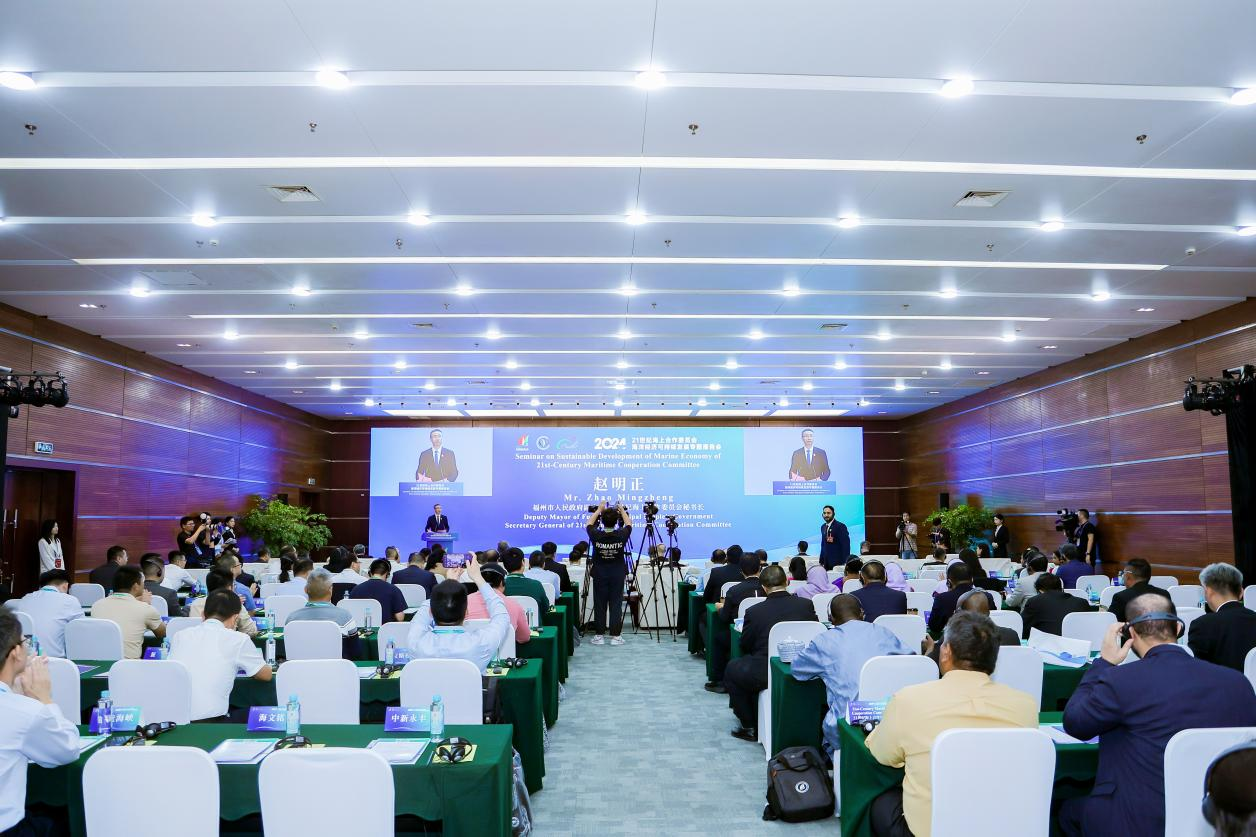
Event Overview
The Seminar focused on sustainable development of the oceans in the context of the new era, addressing the sustainable management of marine resources, marine ecological protection and governance, international cooperation and technological innovation, and new ideas and pathways for the sustainable development of marine economy. Through in-depth sharing and exchanges of innovative practices, the event sought to promote the development of the oceans, share opportunities for marine economic growth, and create a vision of harmony between humanity and the ocean. It featured three main sessions: the opening ceremony, keynote speech, and panel discussion.
Deputy Mayor Zhao Mingzheng presided over the ceremony, Vice Governor Wang Jinfu, Ambassador Fazeel Najeeb, Chief Engineer He Guangshun, Secretary-General Jordi Vaquer, UNESCO Representative Shahbaz Khan (via video), and Deputy Director-General Qi Wei delivered speeches.
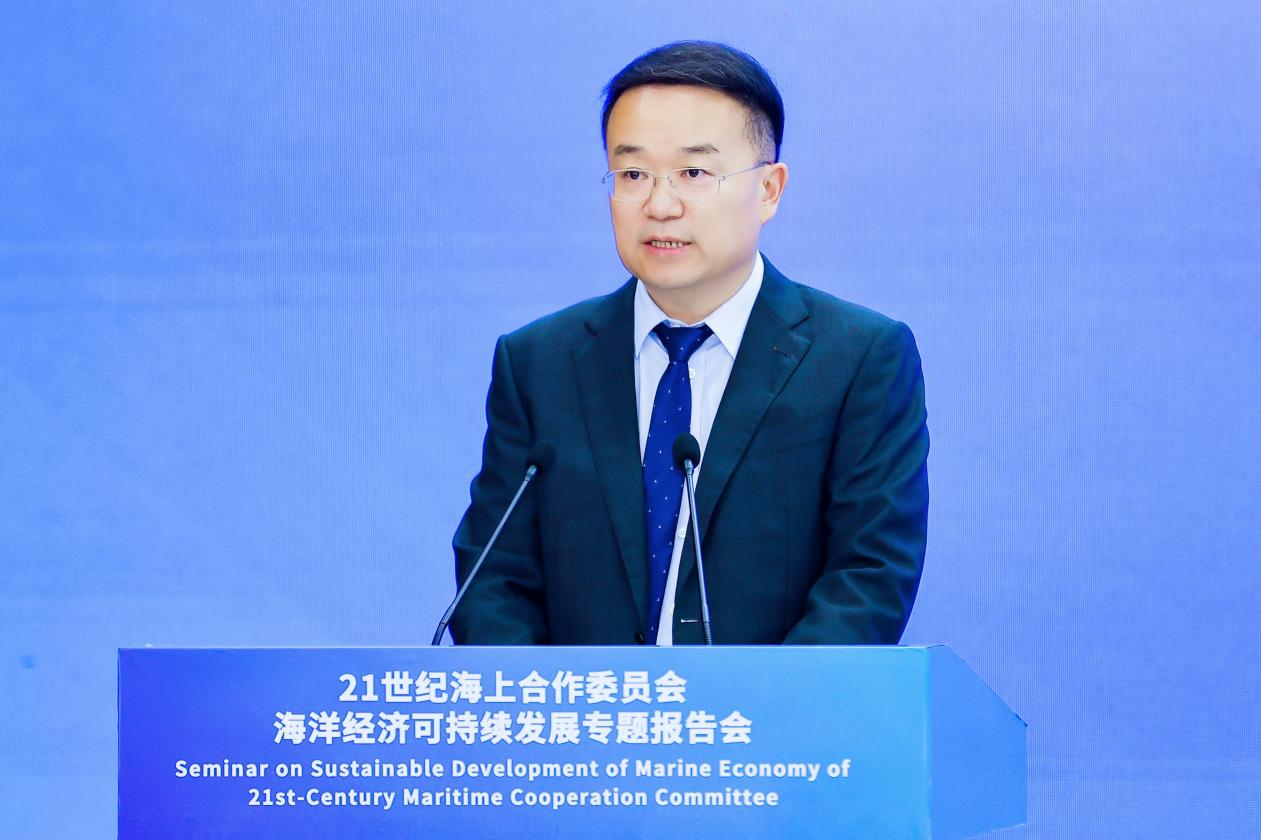
Speech by H.E. Wang Jinfu, Vice Governor of Fujian Provincial People’s Government
Vice Governor Wang Jinfu stressed that as a major province with strong marine economy, Fujian boasts abundant resources. It has made significant achievements in marine science and technology innovation, cultural promotion, and the development of a strong maritime province. Fujian puts ecological protection high on agenda, remains committed to green development, enhances cooperation with countries and regions along the 21st Century Maritime Silk Road. Fujian will foster a harmonious marine ecological environment, explore sustainable models for marine economic development, fostering a community of shared marine peace, trust, order, and prosperity.

Speech by H.E. Fazeel Najeeb, Ambassador of the Maldives to China
Ambassador Fazeel Najeeb praised China’s leadership in the global marine economy and highlighted Fuzhou’s achievements in promoting sustainable and balanced development along its coastal areas. He noted that as an important island nation, the Maldives’ economic development is deeply tied to the ocean, presenting both significant opportunities and challenges. The Maldives is committed to promoting sustainable fisheries, developing renewable energy systems, and advocating for the sustainable development of the blue economy at international forums. He emphasized the importance of international cooperation, urging efforts that transcend borders, sectors, and cultures to foster an inclusive and sustainable marine economy. He called for unified action to address climate change and the depletion of marine resources and expressed optimism about future collaboration opportunities.
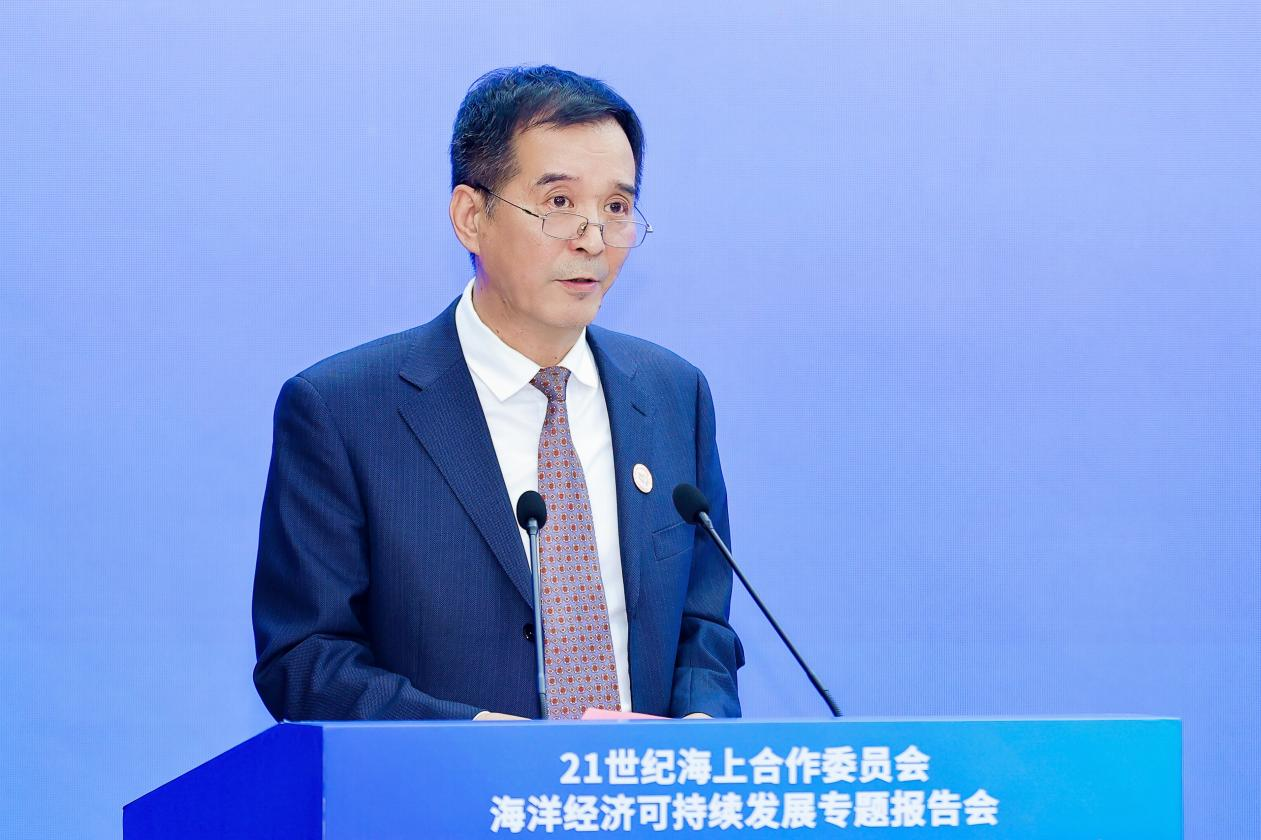
Speech by H.E. He Guangshun, Chief Engineer of the Ministry of Natural Resources, China
Chief Engineer He Guangshun highlighted the ocean’s critical role as the cradle of life, a treasure trove of resources, a vital transportation artery, and an essential space for humanity’s future development. He emphasized that the Chinese government has always prioritized the development of the marine economy and maritime cooperation. In recent years, China has achieved remarkable progress in marine economy, including significant growth in marine GDP, the establishment of a modern marine industry system, and advancements in the development of marine ecological civilization. This Seminar held in Fuzhou focuses on the sustainable development of marine economy, exploring new ideas and pathways for sustainable resource utilization, marine ecological protection and governance, international cooperation, and technological innovation, making it particularly meaningful.
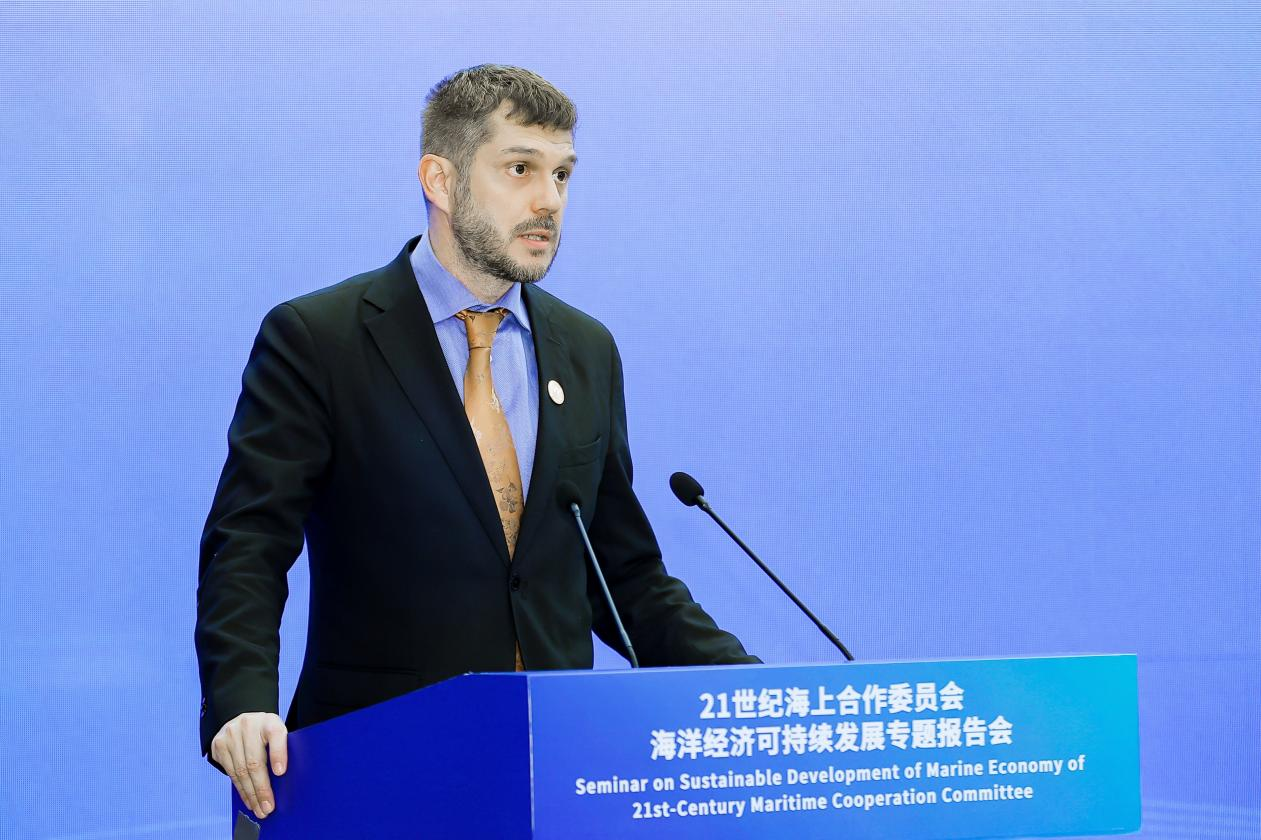
Speech by Mr. Jordi Vaquer, Secretary General of Metropolis
In the speech of Secretary-General Jordi Vaquer, he emphasized that the marine environment is not just a resource but the foundation of urban health, resilience, and prosperity. For coastal metropolises, marine economy forms the core of their economy and culture. Cities bear the responsibility to protect the oceans. However, he noted that urban emissions and some economic activities are threatening marine health and urban safety. Mr. Vaquer underscored the significant role that cities play in developing the sustainable marine economy. He also called on participants to actively engage in discussions, exchange ideas, and explore cooperation opportunities. His vision is to collaboratively build a marine economy that respects nature, enhances resilience, and serves as a model of sustainable growth for future generations.
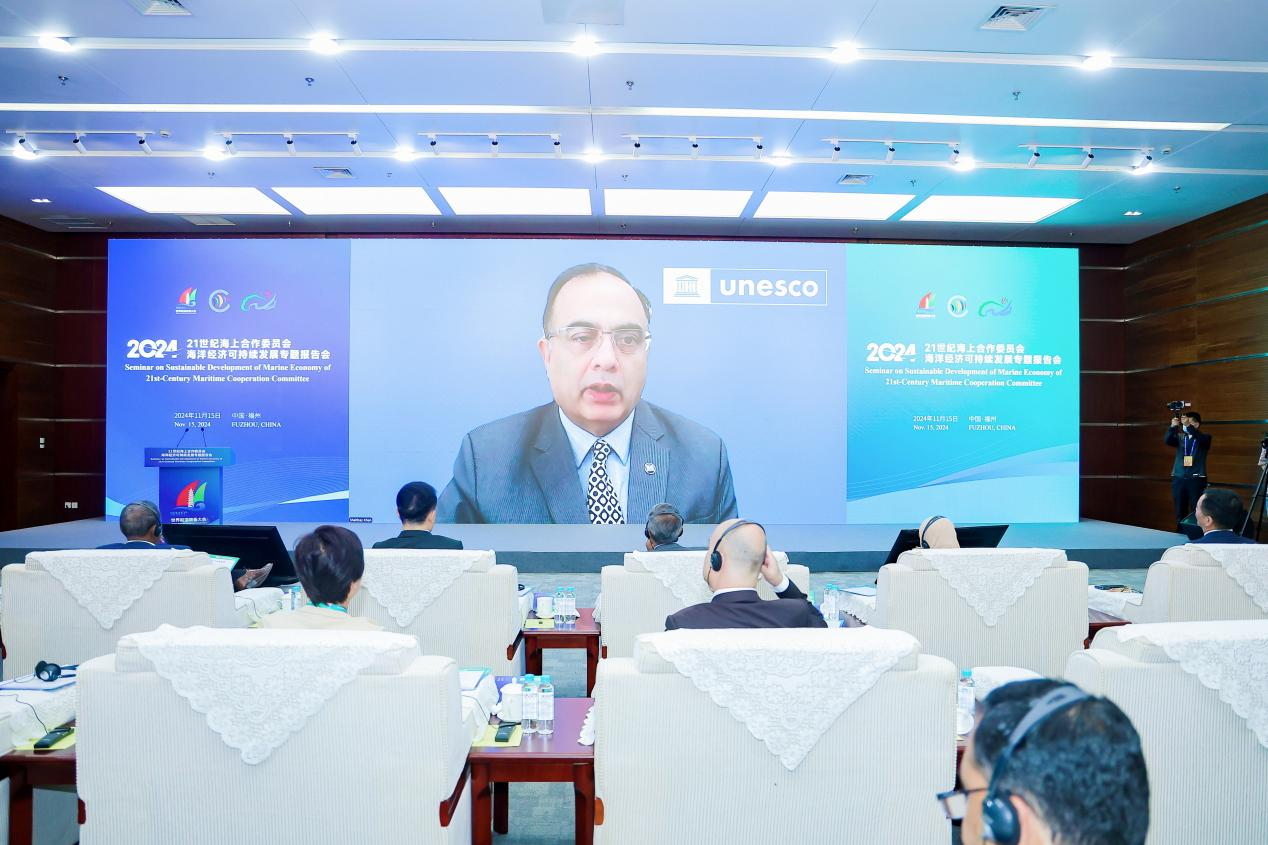
Speech by Prof. Shahbaz Khan, Director of UNESCO for Regional Office for East Asia and Representative to China, DPRK, Japan, Mongolia and ROK
In the speech, Prof. Shahbaz Khan emphasized the critical role of oceans in blue carbon sequestration and biodiversity conservation. He highlighted UNESCO’s recognition of nearly 300 marine World Heritage sites, which are integral to protecting marine ecosystems, promoting ocean culture, and advancing innovation and technological progress to support the sustainable development of blue economy. He also mentioned UNESCO’s active role in fostering marine knowledge through initiatives such as the “UN Decade of Ocean Science for Sustainable Development (2021-2030).” This program aims to provide scientific solutions to global challenges related to oceans. Mr. Khan hoped that this seminar would facilitate meaningful discussions and collaborations, paving the way for a more sustainable, inclusive, and prosperous future.
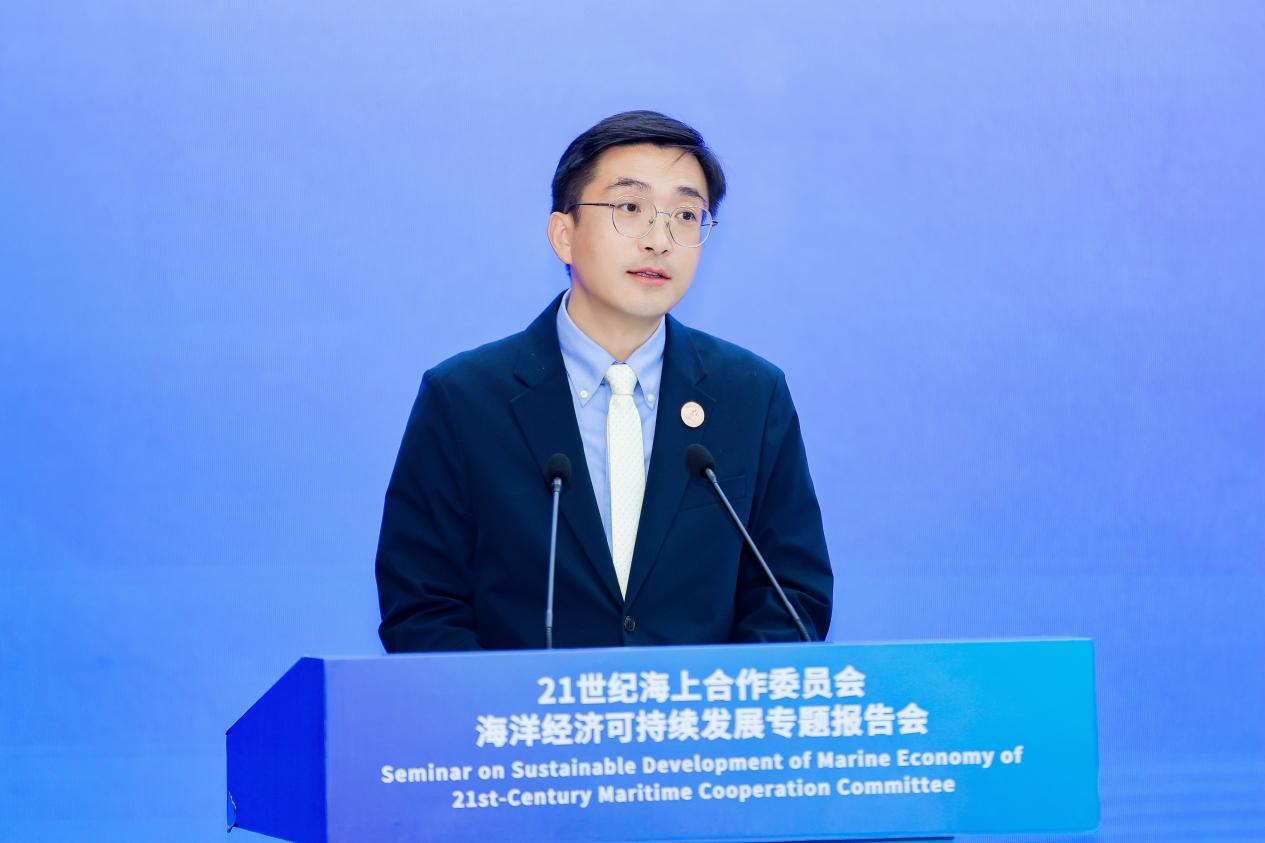
Speech by Mr. Qi Wei, Deputy Director-General of China Center for Contemporary World Studies, International Department of the CPC Central Committee
Deputy Director-General Qi Wei emphasized that marine economy is an open economy, showing the following global trends: 1. The growth potential of marine economy surpasses the overall global economic growth rate, with its share expected to increase further. 2. Global marine economy is rapidly shifting towards Asia. 3. Marine technological innovation is accelerating, becoming a major driver of marine industry. 4. The Maritime Silk Road is presenting significant opportunities. With the implementation of the Regional Comprehensive Economic Partnership (RCEP) and the expansion of China’s foreign trade, the Maritime Silk Road is boosting sectors such as shipping, logistics, ports, and shipbuilding. It also fosters the integration of the blue economy and marine culture. Cities like Fuzhou, as core areas of the Maritime Silk Road, are leading high-quality development in marine economy with their openness and strong “blue engines.” Mr. Qi Wei noted that the China Center for Contemporary World Studies will leverage its advantages to build bridges of communication and cooperation, promoting high-quality development along the Maritime Silk Road.
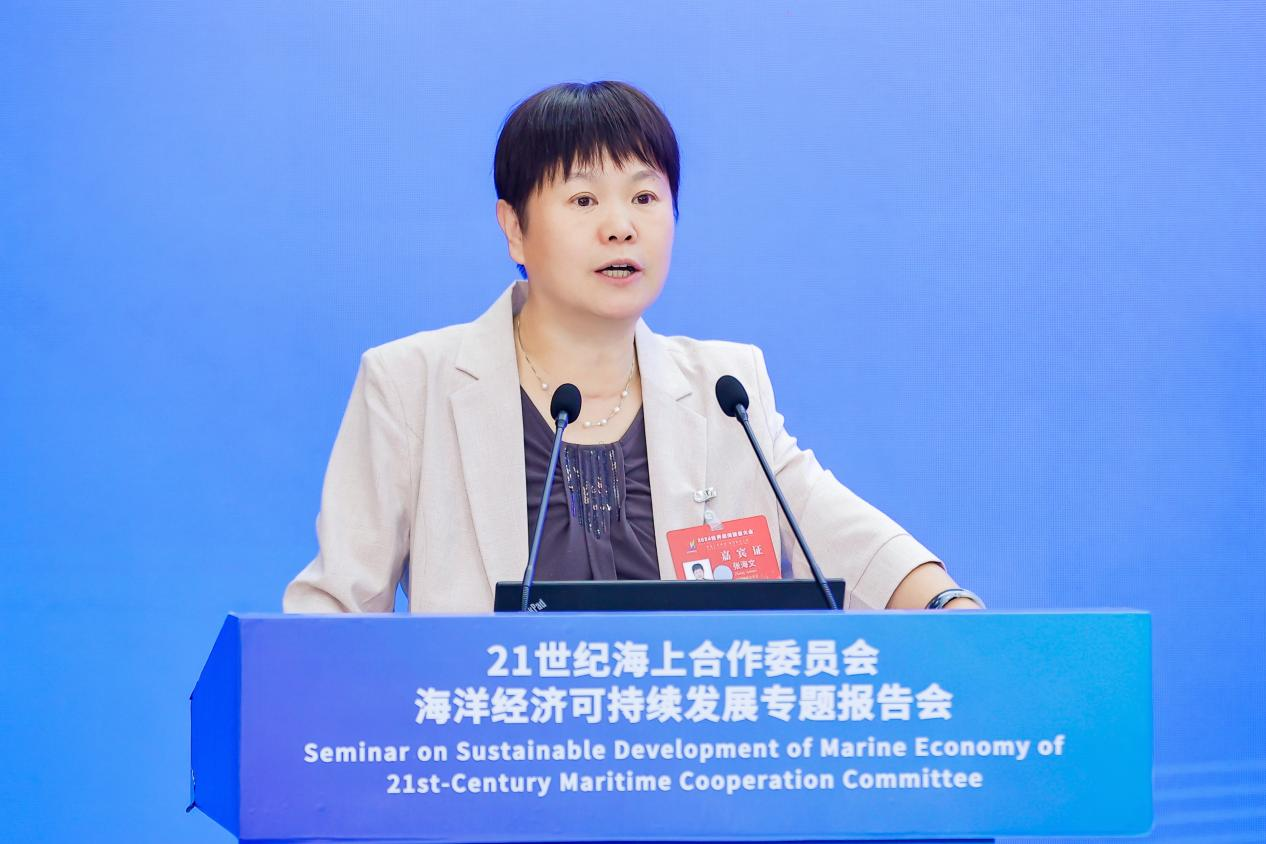
Keynote Speech by Dr. Zhang Haiwen, Executive Deputy Chairman of Chinese Society
for the Law of the Sea
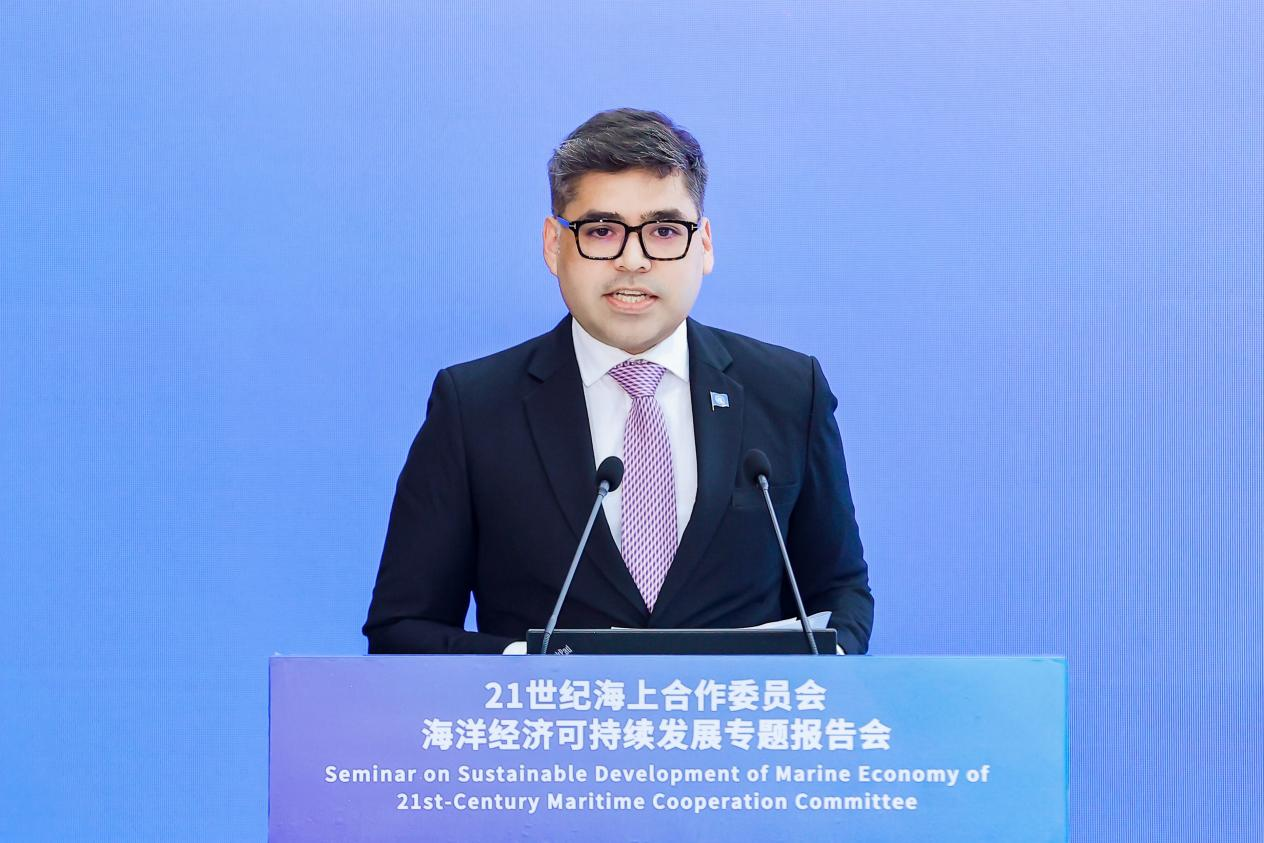
Keynote Speech by Dr. Manuel Castillo, Environmental Affairs Officer of UNESCAP

Keynote Speech by Mr. Kaan Baskurt, Consul General of Türkiye in Guangzhou
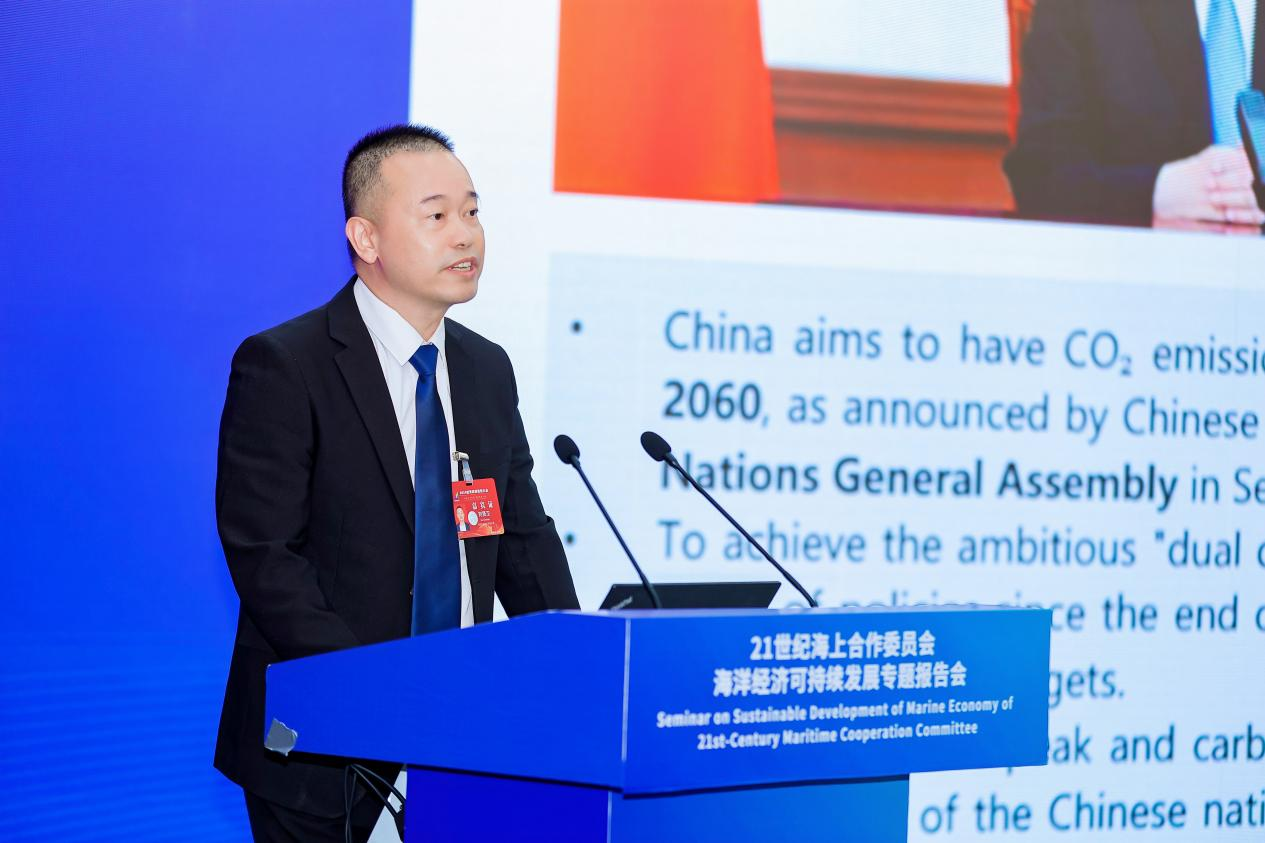
Keynote Speech by Mr. Liu Xianhan, General Manager of Fujian Yida Food Co., Ltd.
The Panel Discussion was moderated by Dr. Fang Qinhua, Deputy Director of Coastal and Ocean Management Institute (COMI) and Professor of College of the Environment & Ecology, Xiamen University. Participants included: Mr. Zhao Mingzheng, Deputy Mayor of Fuzhou Municipal People’s Government and Secretary General of 21st-Century Maritime Cooperation Committee; Mr. Alfred Mentore, Mayor of Georgetown, Guyana; Mr. Francis Green, Chairperson of Kiribati Local Government Association and Mayor of Eutan Tarawa Council; Mr. Liu Zhenghua, Researcher of Third Institute of Oceanography, Ministry of Natural Resources of China and Chief Scientist of APEC Marine Sustainable Development Center; Mr. Alfred Nakatsuma, Senior Environment and Climate Change Advisor of Pan Agora; Mr. Liu Taisheng, Executive Director and General Manager of Dongfang Electric (Fujian) Innovation Institute Co., Ltd.

Panel Discussion Session
Seminar on Sustainable Development of Marine Economy of 21st-Century Maritime Cooperation Committee is part of the 2024 World Maritime Equipment Conference. The event was held from November 15th to 18th, 2024 at Fuzhou Strait International Conference and Exhibition Center. With the theme “Carrying the Dreams of Humanity to New Horizons,” the conference hosted 11 thematic forums to explore industry trends and contribute new ideas for its development.
Source:21CMCC